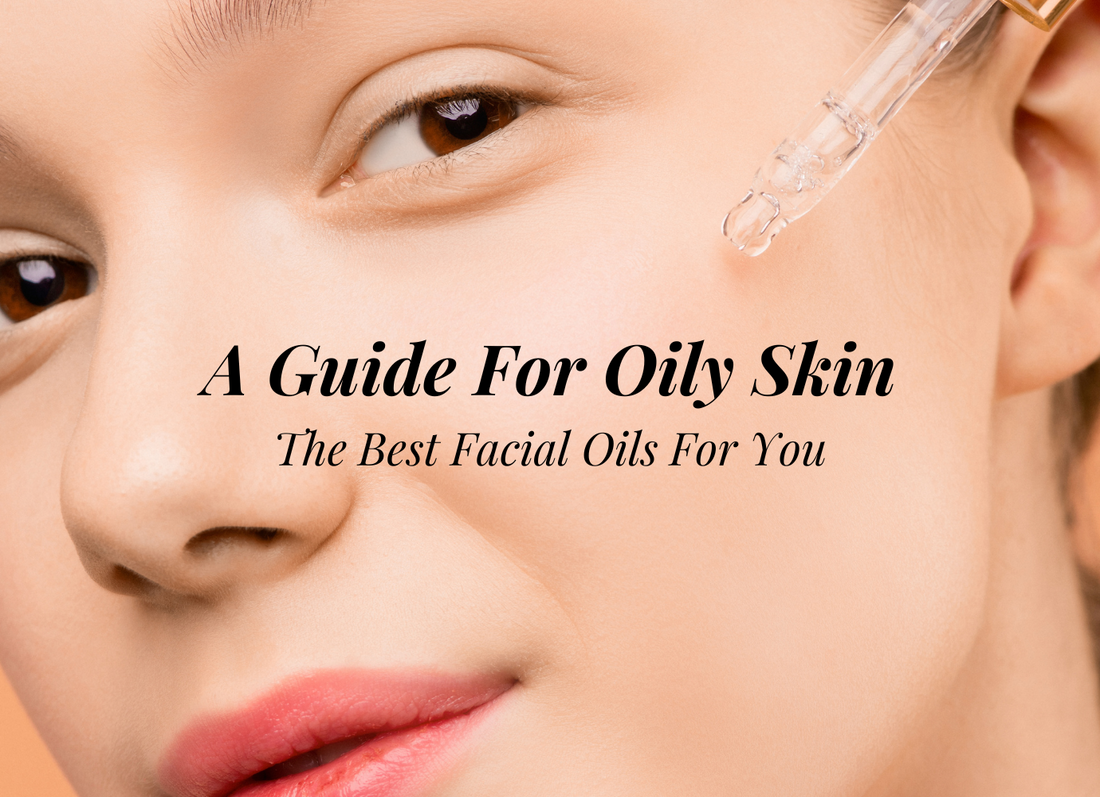In this guide, we'll unravel the myths surrounding oily skin and oils, exploring the crucial role oils play in skincare and diving into the best carrier and essential oils to embrace for a harmonious relationship with oily skin.
Dispelling the Myth: Oils for Oily Skin:
Contrary to popular belief, the idea that oils should be avoided for oily skin is a misconception. When cleansing oily and acne-prone skin, the most important is actually not to shy away from oil-based products but to keep away from detergent and soap cleansers - products with ingredients that strip the skin, leaving the skin vulnerable and disrupting the skin's mantle. Oily skin often results from an overproduction of sebum, the skin's natural oil. Incorporating the right oils can actually help regulate sebum production and restore balance to the skin. Understanding the science behind oily skin is key to unlocking the benefits of oils for this specific skin type.
Read more about the benefits of oil cleansing and how to choose the right oil cleanser here.
If you’re using the correct oil for your skin, it can help replenish your natural facial oils, which can keep levels balanced and breakouts at bay. Some facial oils can even target excess oil and help slog away dead skin cells that might clog pores.
Using facial oil for oily skin types creates an occlusive layer to seal in moisture, keeping it hydrated and plump. These ultra-luxe elixirs provide anti-inflammatory and antibacterial benefits, which can help reduce the redness and sensitivity of acne while diminishing post-breakout discoloration. Facial oils also provide an extra sealant of protection and can transform skin from dull to dazzling.
The Importance of Oils for Oily Skin:
1. Balancing Sebum Production: Oils act as a natural signal to the skin, communicating that there is already an adequate amount of oil present. This, in turn, helps regulate the skin's sebum production, preventing it from going into overdrive.
2. Providing Essential Nutrients: Oily skin doesn't mean well-nourished skin. Certain oils are rich in essential fatty acids, antioxidants, and vitamins that provide the skin with the nutrients it needs. This nourishment contributes to a healthier complexion.
3. Maintaining Skin Barrier Function: Oils play a vital role in fortifying the skin's natural barrier. A well-maintained barrier is essential for preventing moisture loss, protecting against environmental stressors, and promoting overall skin health.
The Dynamic Duo: Carrier and Essential Oils for Oily Skin:
Carrier Oils:
1. Jojoba Oil:
- Mimics the skin's natural sebum, helping to balance oil production without clogging pores.
- Lightweight and non-greasy, making it an ideal moisturizer for oily skin.
2. Grapeseed Oil:
- Contains linoleic acid, known for its ability to regulate sebum production.
- Offers antioxidant properties to combat free radicals.
3. Argan Oil:
- Rich in vitamin E and essential fatty acids, nourishing without overwhelming the skin.
- Helps control oil production while providing hydration.
Essential Oils:
1. Tea Tree Oil:
- Known for its antibacterial properties, helps combat acne and blemishes associated with oily skin.
- Soothes inflammation and redness.
2. Lavender Oil:
- Offers antibacterial and calming properties.
- Assists in balancing oil production and promoting a clearer complexion.
3. Geranium Oil:
- Regulates sebum production while promoting a healthy glow.
- Acts as a natural astringent to tighten pores.
Incorporating Oils into Your Oily Skin Routine:
To harness the benefits of oils for oily skin, start by introducing them gradually into your skincare routine. Begin with a patch test to ensure compatibility, then incorporate them as moisturizers or serums. Lightweight formulations are ideal for oily skin, providing the necessary nourishment without feeling heavy or greasy.
Shop here different facial oils for your type of skin, organic, vegan & non-toxic.

